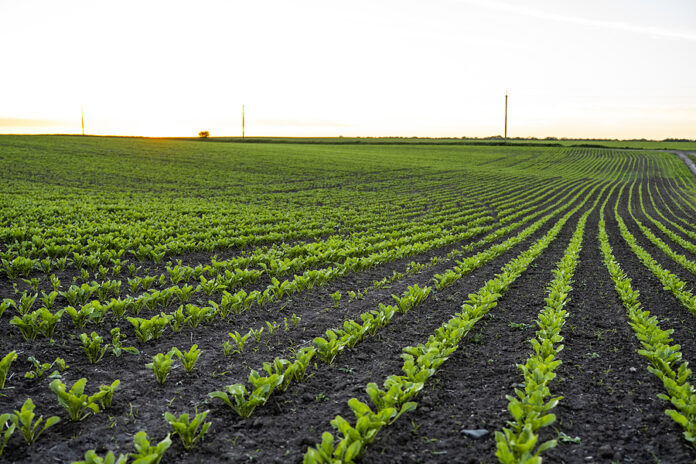
By Larry Clarke, CEO of NanoGuard Technologies
The average citizen’s relationship with food is local. They buy food at the neighborhood grocery, corner store, or perhaps the weekend farmer’s market. That perceived microcosm reduces our depth of understanding and minimizes the weight of importance that global affairs hold on our food industry when, in fact, food is a global product.
The little sticker on an avocado lets the shopper in Nebraska know that the food was grown in Mexico, but wheat from five states over that has traveled hundreds of miles by truck and rail to be processed in one location only to be shipped again doesn’t have such a sticker or label. And this doesn’t just apply to wheat. Tree nuts produced in the U.S. operate much the same, while fruit and vegetables are often imported from any number of countries. This misunderstanding around the origins and travel of food speaks volumes about the lack of connectivity that has been bred from globalization.
What’s more, the average citizen feels hesitancy when shopping at their local grocery store when they notice the price hike on their favorite foods due to inflation. They might decide to buy only the necessities, leaving the pantry of snacks dwindling at home. Yet for those who are just above the poverty line, 10 million of them will be pushed into extreme poverty for each 1% increase in food prices.
Along with inflation, we are contending with another global crisis: climate change. Yet each geographic location is experiencing our changing climate differently. There is a degree of variability, which is leading to hotter temperatures and longer droughts in some areas and more rain with stronger storms in others. These higher levels of variability, on average, are disastrous for growing crops and taking care of livestock. As a result, we will begin to see less food available as traditional crops suffer or the products we do have will risk contamination from delays in shipping and processing from storms, potential power outages shutting down warehouses, and more.
Such an impending food crisis will be catastrophic. While the wealthiest countries will feel fewer restraints as our food supply worsens and the prices rise, we must remember ourselves as global citizens — all focused on innovation and communal dedication so that no one goes hungry. So how might we go about doing that?
Improving the total supply chain through innovation
To provide the food that everyone deserves, we have to have a tighter — but also more flexible — food supply chain. So often, due to a lack of proper cold storage traceability and tracking, what started as perfectly viable food ends up in landfills. What we need is for that food to remain high quality so that it makes it to the grocery store shelves in the kind of condition that consumers rely upon and expect.
Within that, we need to start viewing the food production chain as one giant collective process. The grocery store owner and food processors need to demand consistency and product quality as part of their requirements for suppliers, and not just demand quality but help track it. If we view it as a collective, then everyone in the chain is responsible for the tracking and handling of food products. Along with better storage, we need more efficient and effective transportation, which moves products to market in a timely and economical manner. But before we can consider all that, we need to look at how we farm, harvest, and handle food.
Decontamination has to be an integral part of our supply chain process. Without prioritizing food safety, we are not producing food. Simply put, if it’s not safe, it’s not food — no matter how much the price is marked down. Effective and early decontamination practices can eliminate food waste and provide clean products for consumers. The fact is when people consume contaminated food that is rich in bacteria, mold, and negative microbial pathogens, they become sick. In this cause-and-effect equation, bad food leads to poor health, which leads to overrun hospitals and widespread disease. What we put in our bodies matters, and we shouldn’t demand that consumers make a certain amount of money in order to afford the right to wellness.
Beyond that, a focus on loss reduction allows for us to recalibrate with our planet. We need to be growing food, harvesting it, and eating it rather than ushering 40% of it into landfills or downgrading it as animal feed. That kind of waste is demoralizing for the hardworking farmer who dedicates their days to that harvest. It removes profits from the supply chain through waste, and it’s devastating for our planet, which is already being stretched to its limit.
A tomorrow of safe food
The risk of not changing our ways is more dire than ever with the state of inflation. While the United States remains one of the wealthiest countries in the world, able to provide food programs to those in poverty, the increased inflation around the world has catastrophic consequences.
A global food crisis can lead to civil unrest and mass migration, as people who are starving set out in search of a more robust food supply. When money is tight, people tend to cut back on what is not necessary, such as hobbies or social activities. But everyone needs to eat, which means that as money gets harder to come by along with food, conditions become dire and survival mode kicks in. As we continue to live in a world that is ravaged by climate change, global poverty, and civil unrest, the necessities we need to survive will become a source of competition. This looming catastrophe can be prevented if we are prepared to accommodate the change we so require.
I believe that there is a solution that is beneficial for all, and it is that we need to boost the total value of the supply chain. We don’t simply need to raise the volume of food; we need to raise the value, too. In this industry, more doesn’t immediately equal good if the quality isn’t there. Within that focus comes decontamination practices, so that we can improve quality while reducing waste.
An increase in food quality will allow us to lead healthier lives while ensuring hunger is minimized. We ought to extend our reach beyond our locale, our microcosm, because no matter how far away we view certain countries or peoples, we all rely on the same soil, the same supply chain, to satiate ourselves. Atop our tables might sit different meals, but they’re tables just the same. In order to keep putting food on those tables, we require a major shift in practices.
If we keep doing things the same way we are now, the way we’ve always done them in a world that’s changing so dramatically, we’re destined for failure. I believe that it doesn’t have to be that way.
 Larry Clarke is the CEO of NanoGuard Technologies, a company that prevents food and feed waste and improves food safety by eradicating harmful pathogens and mycotoxins through its Airilization technology.
Larry Clarke is the CEO of NanoGuard Technologies, a company that prevents food and feed waste and improves food safety by eradicating harmful pathogens and mycotoxins through its Airilization technology.







